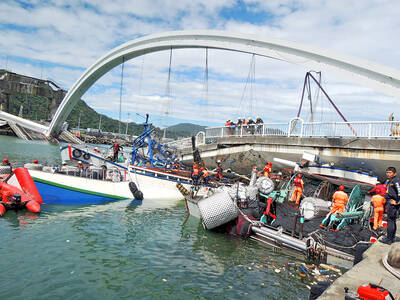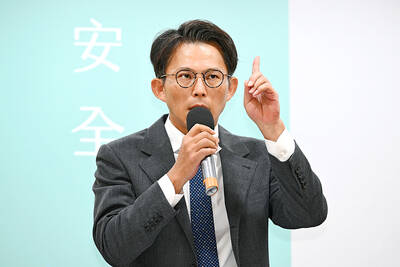Drug War (毒戰)
Johnnie To’s (杜琪峰) first action flick to be shot in China proves to be one of his best yet. The new environment has prompted the veteran director to opt for a more gritty and realistic style of presentation, there is enough violence and humor to please those who enjoyed his Hong Kong-set crime tales such as Election (黑社會) and Sparrow (文雀). The film features a host of To regulars, including Louis Koo (古天樂), excellent as the boss of an amphetamine production plant who is forced to cooperate with the police in a complex sting operation. In Drug War, To has gone for a police procedural format, focusing on the details of police work at the expense of tough guy attitudes. Although violence is used sparingly, it is used to good effect, and the fast paced action will keep audiences on the edge of their seat throughout.
Back to 1942 (一九四二)
“War, drought and famine” proclaims the movie poster for Back to 1942, a film by Chinese director Feng Xiaogang (馮小剛) about the humanitarian disaster in China’s Henan Province in the year of the title. Feng is following on from Aftershock (唐山大地震), his massive film about the Tangshan (唐山) earthquake of 1976. The director seems to have acquired a taste for these big-budget takes on historical events, and while the picture is visually stunning, giving a harrowing depiction of mass movements of population fleeing hunger through a war torn land, critics are virtually unanimous in pointing out that Feng never manages to generate a real emotional interaction with the audience. Leading the cast list is Adrien Brody, playing an American journalist who witnesses the event. It is nice to see Chinese filmmakers casting proper actors to play foreigners, even if this is just a blatant attempt to capture the Western market. At nearly two and a half hours, Feng’s film, with its relentless pursuit of melodramatic sentiment, is not for the faint hearted.
The Words
Some movies are clever. Some, like The Words are too clever, and manage to undermine an excellent concept, good script and committed acting by wanting to fit everything into a clever little structure that shouts out: “Wow, I’m so clever.” The Words, which stars Bradley Cooper, has much that is admirable, not least a fascinating concept dealing with authorial plagiarism, creativity, and the consequences of being found out. Cooper is proving to be much more than a pretty face, though his performance here falls far short of what he achieved in the Oscar-nominated Silver Lining Playbook. Zoe Saldana, who played Neytiri, a giant blue alien love interest in Avatar, is trying her hand at drama after proving herself a fine action star in Columbiana. All this makes for a film that is worth watching, but which falls short of its, admittedly, rather lofty ambitions.
Iron Man 3
The third installment in the Iron Man series and the fifth time that Robert Downey Jr has played Tony Stark, the reluctant and often irresponsible superhero in a metal suit. While one might groan at yet another Iron Man movie, director Shane Black has managed to inject a high level of interested, bringing Stark’s character forward rather than just upping the action to generate audience interest. Black, whose track record is primarily as a screenwriter, and who created the Lethal Weapon series, also wrote the script for Iron Man 3, and his handling both of his star and the strong supporting cast shows his ability to inject a solid dose of “literary” merit into this action flick. Downey Jr does a good job building his character, but the real star of the show is Ben Kingsley, a delightful and unexpected villain.
Searching for Sugar Man
When he was signed by former Motown chief Clarence Avant in the late 1960s, Rodriquez, a Detroit-based musician, was hailed as the next Bob Dylan. The critical success of two albums in the early 1970s did not translate into big record sales, and Rodriquez faded into oblivion, but found an unexpected fan base in South Africa, where his protest songs struck a chord in a country still riven by the blight of apartheid. Swedish director Malik Bendjelloul’s documentary seeks to track down the musician through a series of interviews that hint at a life of creative turmoil that may even have ended with a suicide on stage during a performance. The film helps discover a forgotten creative talent, but also manages to build a sense of mystery, both about the musician, but also about the processes that determine what becomes famous and what drifts under the carpet of history.

Before the recall election drowned out other news, CNN last month became the latest in a long line of media organs to report on abuses of migrant workers in Taiwan’s fishing fleet. After a brief flare of interest, the news media moved on. The migrant worker issues, however, did not. CNN’s stinging title, “Taiwan is held up as a bastion of liberal values. But migrant workers report abuse, injury and death in its fishing industry,” was widely quoted, including by the Fisheries Agency in its response. It obviously hurt. The Fisheries Agency was not slow to convey a classic government

Not long into Mistress Dispeller, a quietly jaw-dropping new documentary from director Elizabeth Lo, the film’s eponymous character lays out her thesis for ridding marriages of troublesome extra lovers. “When someone becomes a mistress,” she says, “it’s because they feel they don’t deserve complete love. She’s the one who needs our help the most.” Wang Zhenxi, a mistress dispeller based in north-central China’s Henan province, is one of a growing number of self-styled professionals who earn a living by intervening in people’s marriages — to “dispel” them of intruders. “I was looking for a love story set in China,” says Lo,

It was on his honeymoon in Kuala Lumpur, looking out of his hotel window at the silvery points of the world’s tallest twin skyscrapers, that Frank decided it was time to become taller. He had recently confessed to his new wife how much his height had bothered him since he was a teenager. As a man dedicated to self-improvement, Frank wanted to take action. He picked up the phone, called a clinic in Turkey that specializes in leg lengthening surgery — and made a booking. “I had a lot of second thoughts — at the end of the day, someone’s going

The next few months will be critical in determining the future of the Taiwan People’s Party (TPP). Following party founder Ko Wen-je’s (柯文哲) arrest in September last year, Huang Kuo-chang (黃國昌) effectively became the de facto face of the party and officially became chairman in January. While Ko frequently criticized the ruling Democratic Progressive Party (DPP) and insinuated sinister intentions on the part of the DPP’s New Tide faction, his era was largely defined by the TPP slogan “rational, pragmatic, scientific,” albeit defined largely by his definition of what that meant. The tone and language used by the TPP changed dramatically